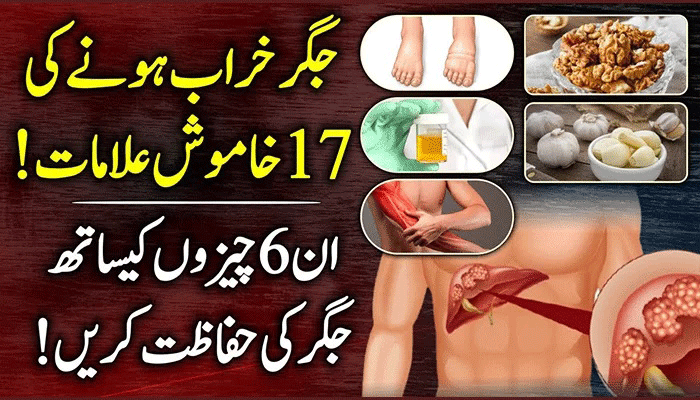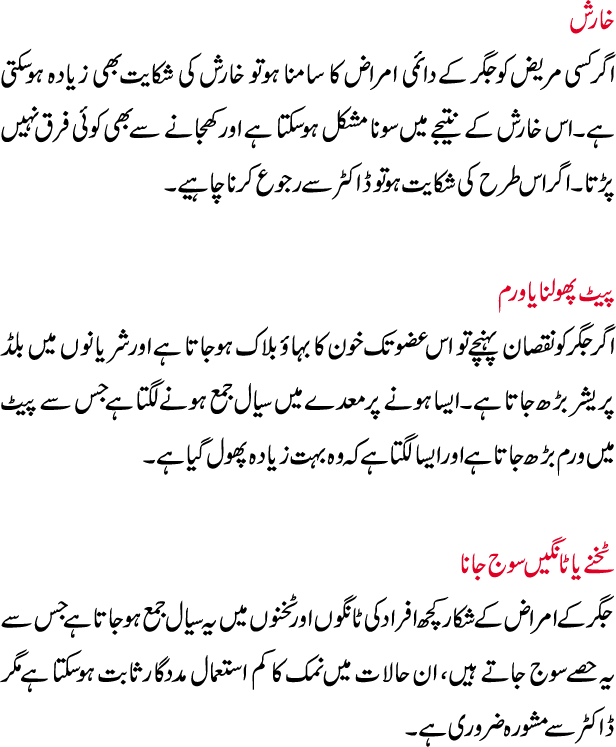
The liver, one of the largest and most vital organs in the human body, plays a crucial role in maintaining overall health and well-being. Located in the upper right abdomen, the liver performs a multitude of functions that are essential for digestion, metabolism, detoxification, and various other processes. However, when the liver is not functioning properly, it can lead to a range of symptoms and indicate the presence of liver disease.
Liver disease is a significant health concern in Pakistan. The country faces a high burden of liver diseases due to various factors, including viral hepatitis, fatty liver disease, and inadequate healthcare infrastructure. Hepatitis B and C are particularly prevalent in Pakistan, with a large number of people infected and at risk of developing chronic liver disease.
Liver Disease Early Symptoms (Urdu)




One of the key contributors to liver disease in Pakistan is the high prevalence of viral hepatitis. Unsafe blood transfusions, contaminated medical equipment and poor infection control practices are major factors leading to the transmission of hepatitis viruses. Additionally, inadequate awareness about preventive measures and limited access to screening and vaccination programs contribute to the high incidence of viral hepatitis.
In this article, we will explore the functions of the liver and highlight the top 10 signs and symptoms of liver dysfunction.
I. Liver Functions:
The liver is involved in numerous complex functions that contribute to the overall health of our body. Here are some key roles performed by the liver:
Metabolism: The liver metabolizes nutrients, including carbohydrates, proteins, and fats, converting them into usable energy or storing them for later use.
Detoxification: It acts as a filter, removing toxins, drugs, and harmful substances from the bloodstream, ensuring they are safely eliminated from the body.
Bile Production: Bile is an important fluid that plays a number of important roles in the body. The liver produces bile and stores it in the gallbladder. Bile is released into the small intestine when food enters, where it helps to digest fats, transport cholesterol, and excrete bilirubin. Bile also helps to neutralize stomach acid and promote the growth of beneficial bacteria in the intestines.
Protein Synthesis: The liver produces various proteins, including albumin, which helps maintain proper fluid balance in the body, and clotting factors that aid in blood clot formation.
Vitamin Storage: The liver stores vitamins A, D, E, K, and B12, releasing them when needed for the proper functioning of the body.
II. Top 10 Signs and Symptoms of Liver Dysfunction (Disease):
Liver diseases or impaired liver function can manifest through several signs and symptoms. Here are the top 10 indicators of liver dysfunction:
Jaundice:
A yellowing of the skin and eyes is caused by the buildup of bilirubin, a yellow pigment produced during the breakdown of red blood cells.
Fatigue:
Feeling excessively tired or weak, even with sufficient rest, is a common symptom of liver disease.
Abdominal Pain and Swelling:
Pain or discomfort in the upper right abdomen, along with swelling or bloating, may indicate liver problems.
Unexplained Weight Loss or Gain:
Sudden and unexplained weight changes, either loss or gain, can be associated with liver dysfunction.
Changes in Urine and Stool:
Dark urine and pale stools may be signs of liver issues, as the liver plays a role in processing waste products.
Nausea and Vomiting:
Persistent nausea, vomiting, and a general feeling of sickness can be indicative of liver disease.
Loss of Appetite:
A decrease in appetite and a feeling of fullness even after eating small amounts of food are common symptoms.
Skin Issues:
Liver dysfunction can lead to skin problems such as itching, eczema, spider veins, or prominent blood vessels on the skin.
Mental Confusion:
Known as hepatic encephalopathy, it can cause forgetfulness, confusion, and difficulty concentrating.
Easy Bruising and Bleeding:
Liver disease can affect blood clotting, resulting in easy bruising, bleeding gums, or frequent nosebleeds.
Final Words:
The liver is a vital organ with multiple functions crucial to maintaining overall health. Recognizing the signs and symptoms of liver dysfunction is essential for early detection and proper management of liver diseases. If you experience any of the above mentioned symptoms, it is advisable to consult a healthcare professional for a thorough evaluation and diagnosis. Remember, a healthy liver is key to a healthy body, so it’s important to prioritize its well-being through a balanced lifestyle and regular medical check-ups.





